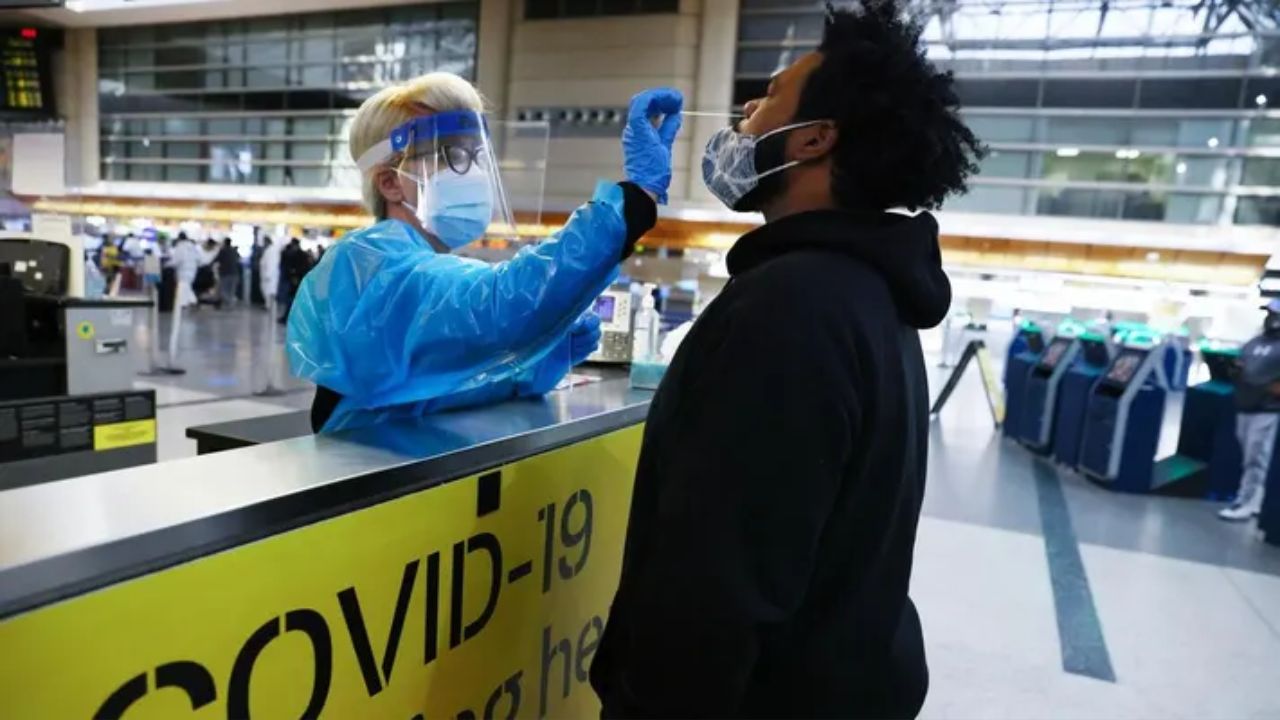With a rise in Covid cases in San Francisco, a new variant known as EG.5, nicknamed Eris, has emerged. This strain is a derivative of the common Omicron variant within the coronavirus family and seems to be contributing to an increase in Covid rates across the nation.
Eris has now become the predominant Covid strain in the country, accounting for 17.3% of all Covid cases nationwide, as reported by the Centers for Disease Control.
In California, Walgreens’ test positivity rates are climbing, reaching 48.3% as of August 8th. This marks an almost 8% rise from the previous week and surpasses the national positivity rate of 44.7%.
As of July 26th, the Eris variant constituted approximately 8% of Covid presence in California’s wastewater, according to samples collected by Biobot Analytics. In comparison, the XBB subvariants of Omicron, which are also spreading in the U.S., make up almost half of the Covid presence in California’s wastewater.
At the local level, it’s currently uncertain to what extent the new EG.5 variant has spread within the San Francisco Bay Area. Wastewater data only tracks the most recent dominant variant, Arcturus or XBB, along with older strains. Nevertheless, all strains of Covid are on the rise in Bay Area wastewater.
Wastewater monitoring facilities in San Francisco and nearby cities like Palo Alto, Newark, and San Leandro have documented a notable increase in Covid presence, continuing the upward trend that began in July.
For instance, San Francisco’s Oceanside treatment plant on the west side of the city observed a 209% surge in Covid presence in local sewage between July 9th and August 9th. In the Southeast sewershed, which serves eastern San Francisco, there was an 82% increase in Covid presence during the same period.
Cause for Concern?
Despite the recent attention on the new Eris strain, officials assert that this variant is not currently a significant concern.
The World Health Organization stated in an August 9th announcement, “The global-level public health risk posed by EG.5 is evaluated as low. While EG.5 has demonstrated increased prevalence, growth advantage, and immune escape properties, no changes in disease severity have been reported thus far.”
In essence, the new Covid strain is expected to behave similarly to previous variants, presenting the same symptoms and level of severity, such as a sore throat, cough, fever, runny nose, and congestion.
As of August 5th, San Francisco’s hospitalization rates also remain relatively low, with 37 Covid-related hospitalizations reported by the city’s public health department.
The CDC has not altered its vaccine recommendations. The agency encourages individuals to keep up with their existing vaccinations and to receive a booster shot in the upcoming fall when an updated Covid vaccine will become available.
“The updated vaccines are termed ‘updated’ because they offer protection against both the original virus causing Covid-19 and the Omicron variant,” the CDC noted on its vaccine guidance page, pointing out that the original monovalent boosters are no longer FDA-approved.
The San Francisco Department of Public Health did not provide comments by the time of publication.
